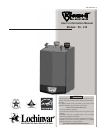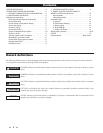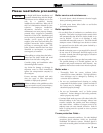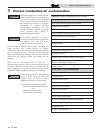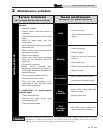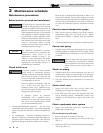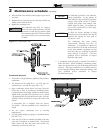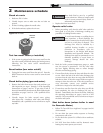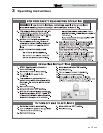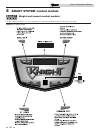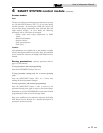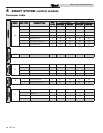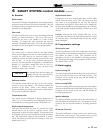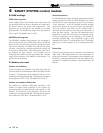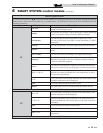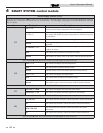
User’s Information Manual
2 Maintenance schedule (continued)
7
4. Fill with fresh water until the water begins to pour out of
the drain.
5. Replace the cap. Press the cap onto the trap until the cap
makes contact with the drain.
6. Replace the retaining screw.
ƽ WARNING
The condensate trap (FIG. 2-1) must be
filled with water during all times of boiler
operation to avoid flue gas emission from
the condensate drain line. Failure to fill the
trap could result in severe personal injury
or death.
Figure 2-1 Condensate Trap
Condensate disposal
1. This boiler is a high efficiency appliance that produces
condensate.
2. The bottom of the boiler has a 1/2 inch pipe for
connection of a 1/2 inch PVC pipe (FIG. 2-2).
3. Slope condensate tubing down and away from the
boiler into a drain or condensate neutralizing filter.
Condensate from the Knight wall mount boiler will be
slightly acidic (typically with a pH from 3 to 5). Install
a neutralizing filter if required by local codes. Call your
qualified service technician to inspect the boiler and
system.
A Neutralizer Kit is available from the factory
(Kit #3087). Call your qualified service technician to
install.
4. Do not expose condensate line to freezing
temperatures.
5. Use only plastic tubing or piping as a condensate drain
line (FIG. 2-2).
6. Leave the top of the tee assembly installed in the unit
open, this is needed as a vacuum break. The blocked
drain switch will shut the boiler down before any
condensate can flow out of the tee.
Use materials approved by the authority
having jurisdiction. In the absence of
other authority, PVC and CPVC pipe must
comply with ASTM D1785 or D2845.
Cement and primer must comply with
ASME D2564 or F493. For Canada use
CSA or ULC certified PVC or CPVC pipe,
fittings, and cement.
7. A condensate removal pump is required if the boiler is
below the drain. When installing a condensate pump,
select one approved for use with condensing boilers and
furnaces. The pump should have an overflow switch to
prevent property damage from condensate spillage. Call
your qualified service technician to inspect
the boiler and system.
NOTICE
NOTICE
To allow for proper drainage on large
horizontal runs, a second line vent may be
required and tubing size may need to
increase to 1 inch.
The condensate line must remain
unobstructed, allowing free flow of
condensate. If condensate is allowed to
freeze in the line or if the line is obstructed
in any other manner, condensate can exit
from the boiler tee, resulting in potential
water damage to property. Call your
qualified service technician to inspect
the boiler and system.
Figure 2-2 Condensate Disposal



